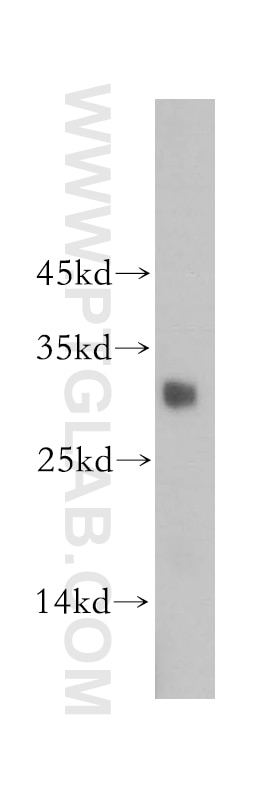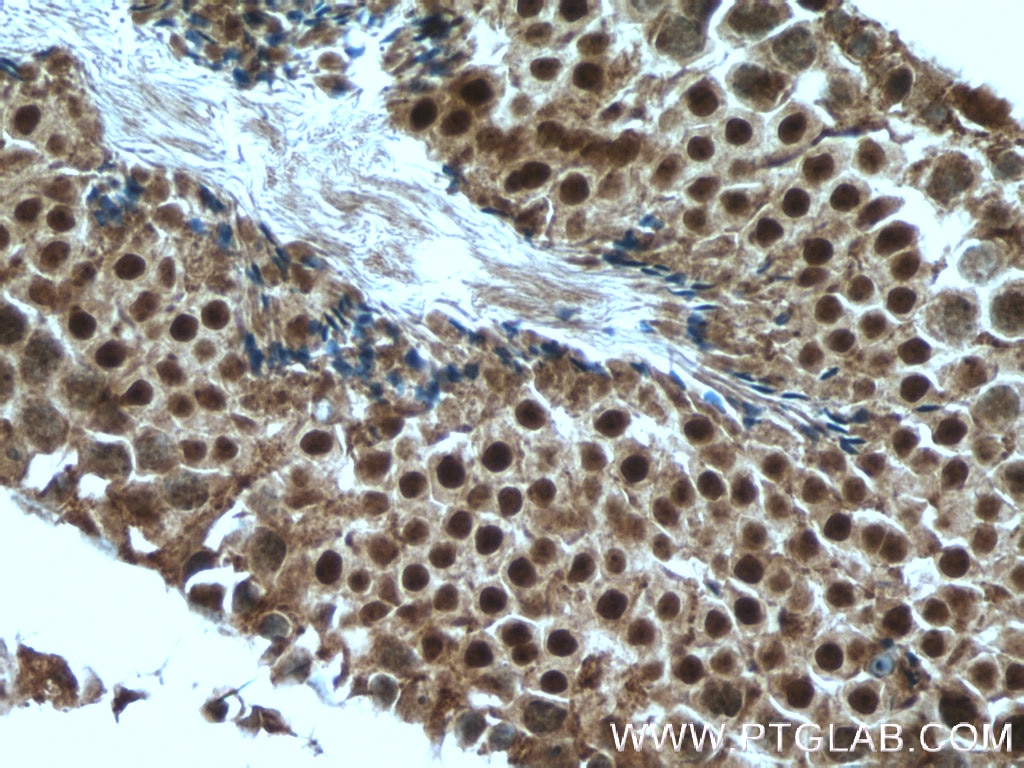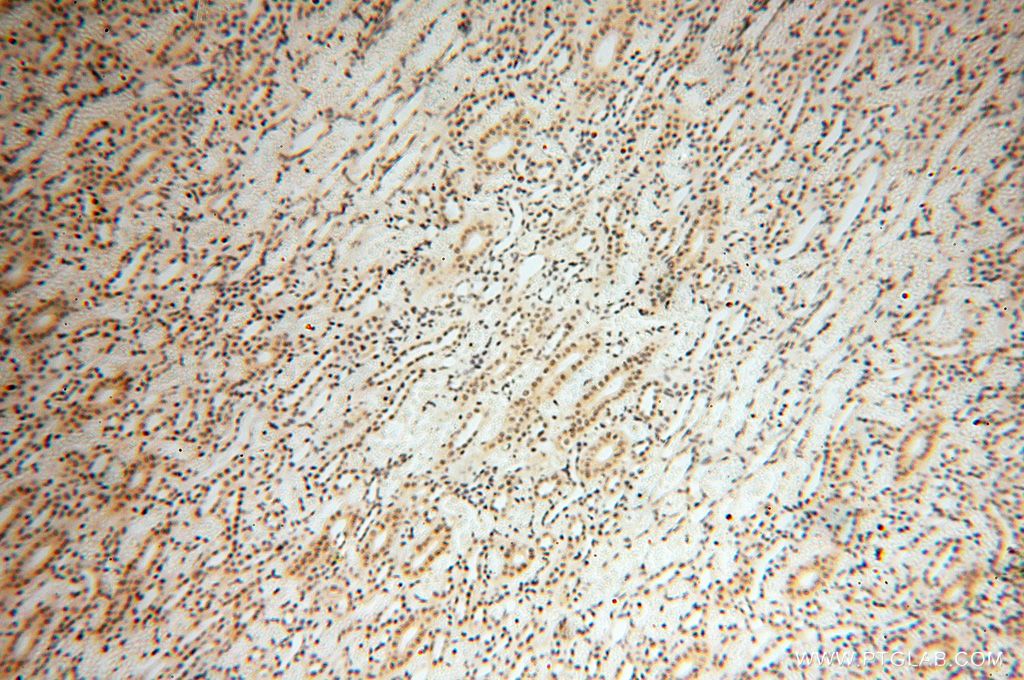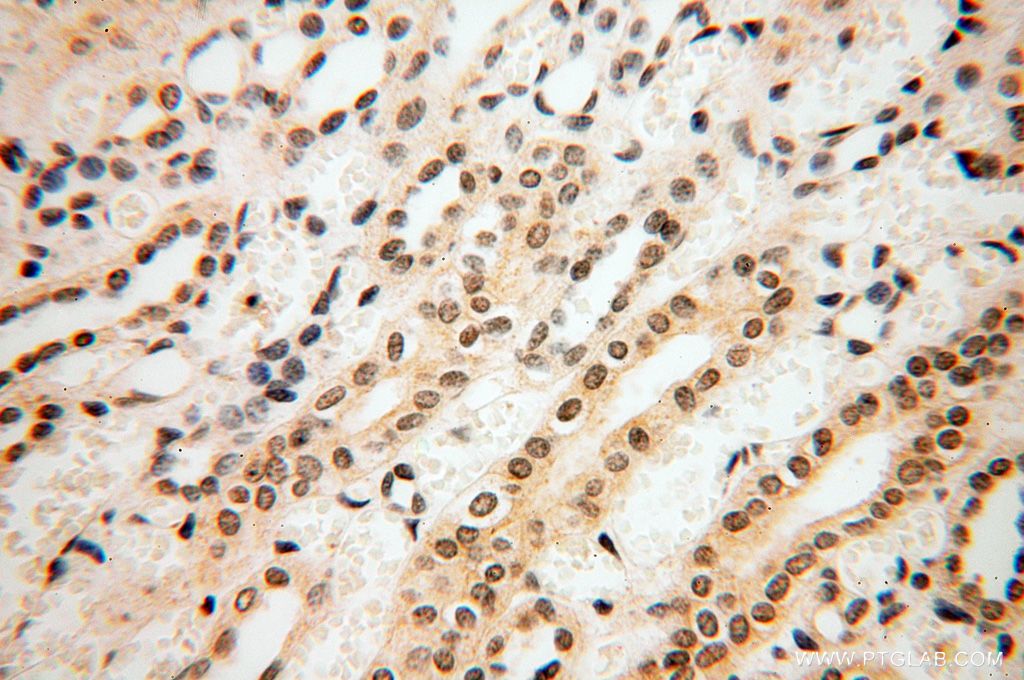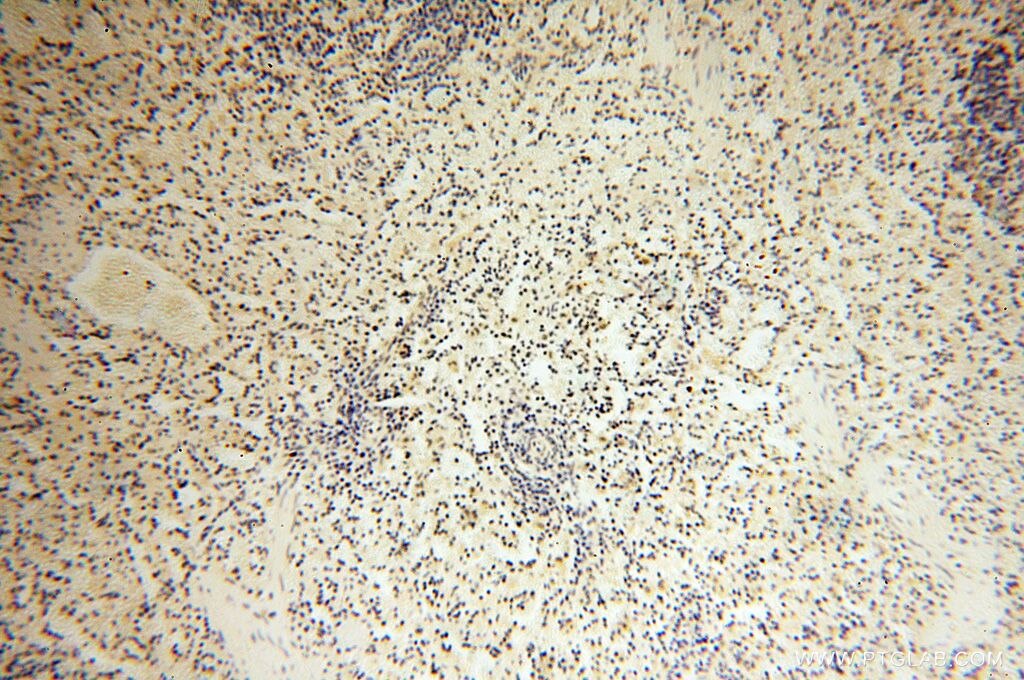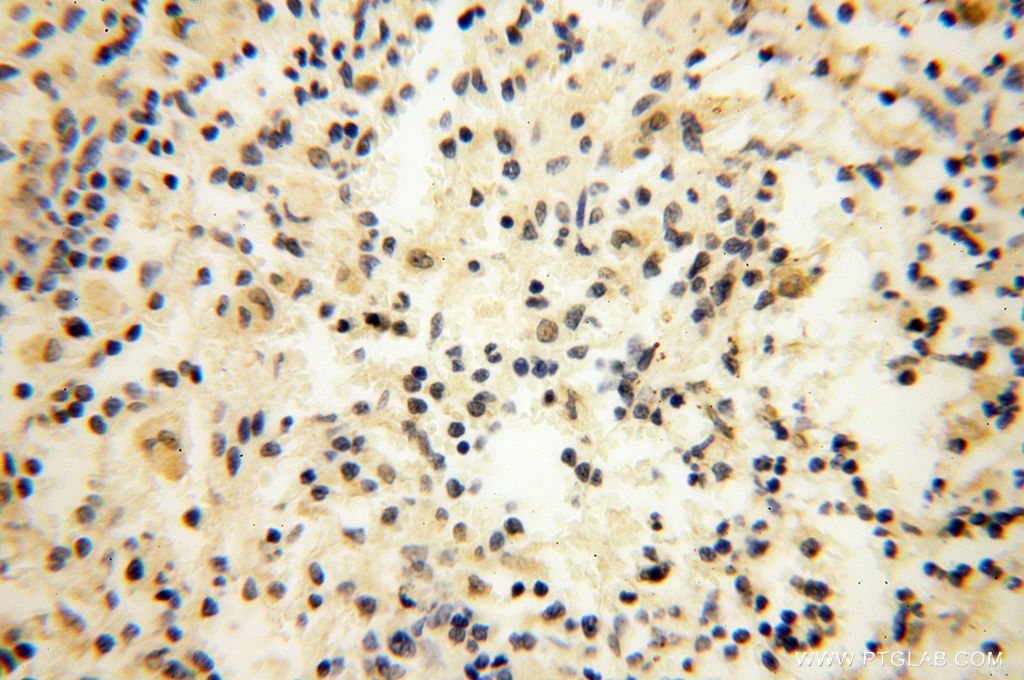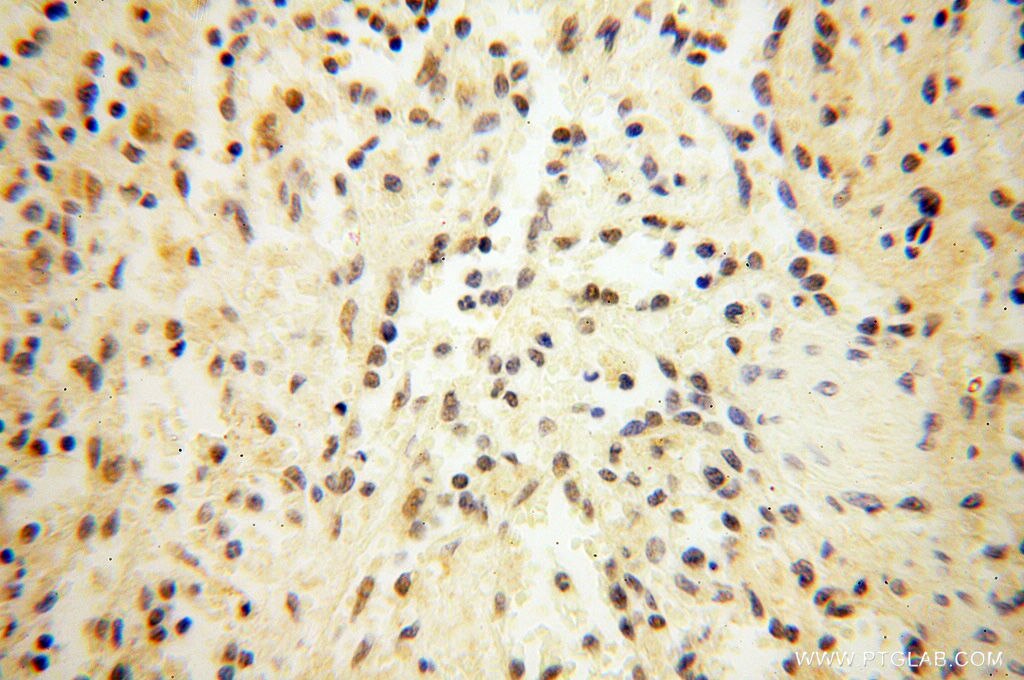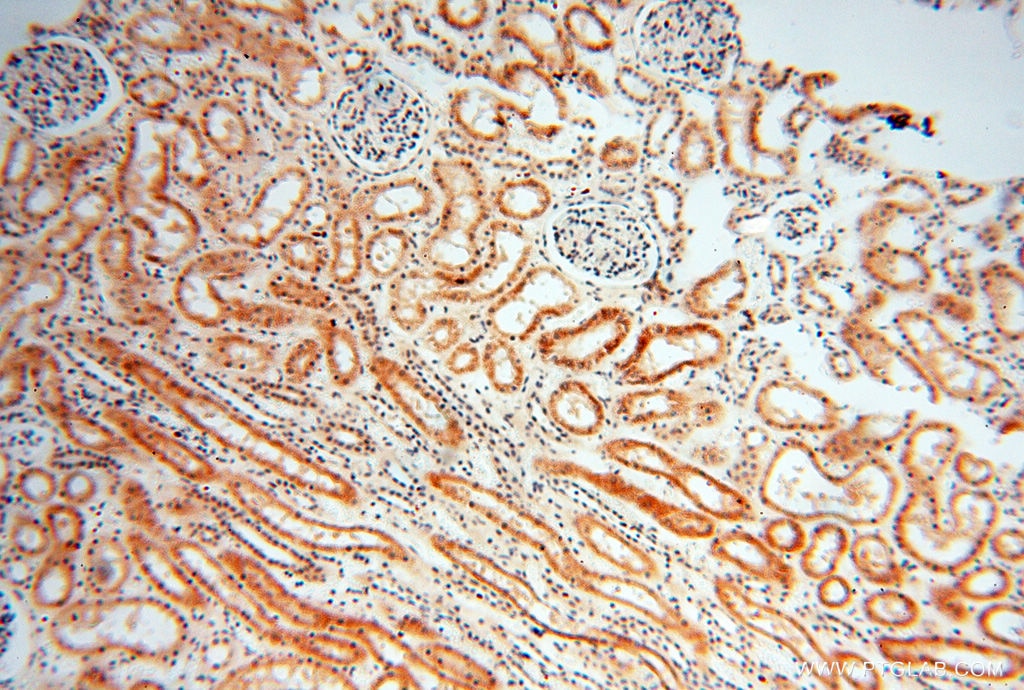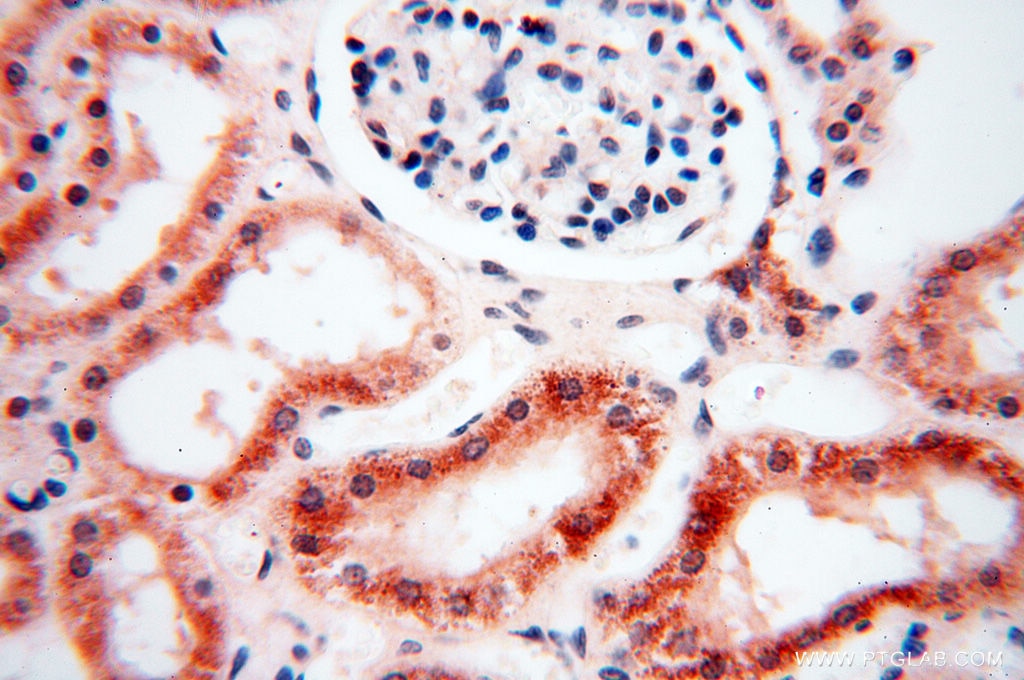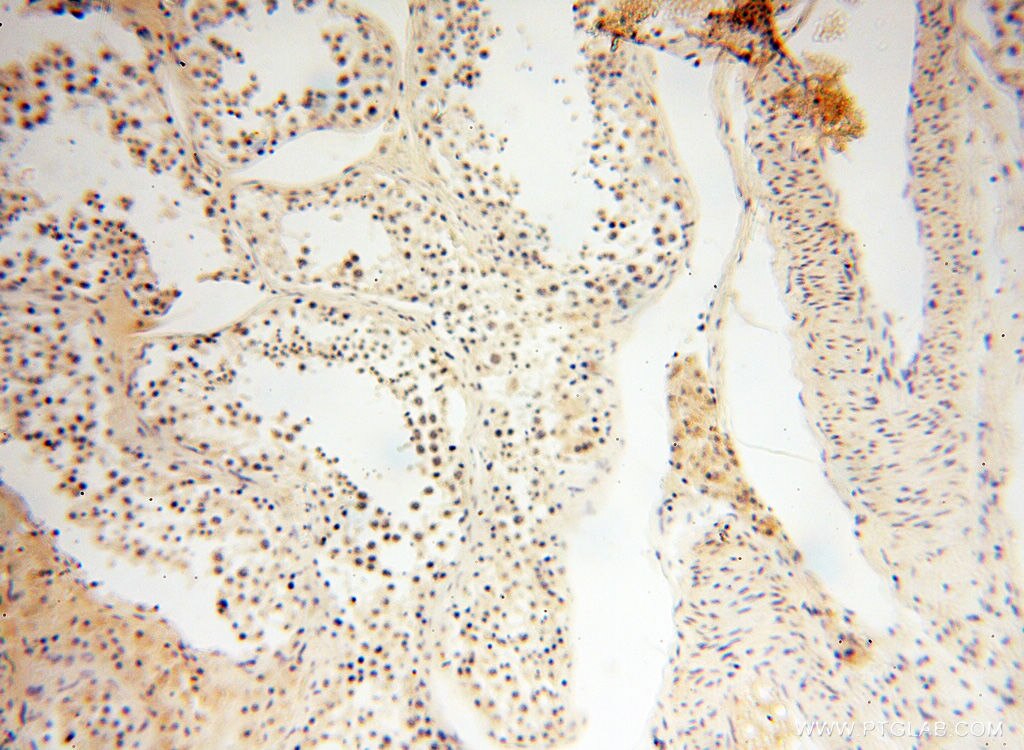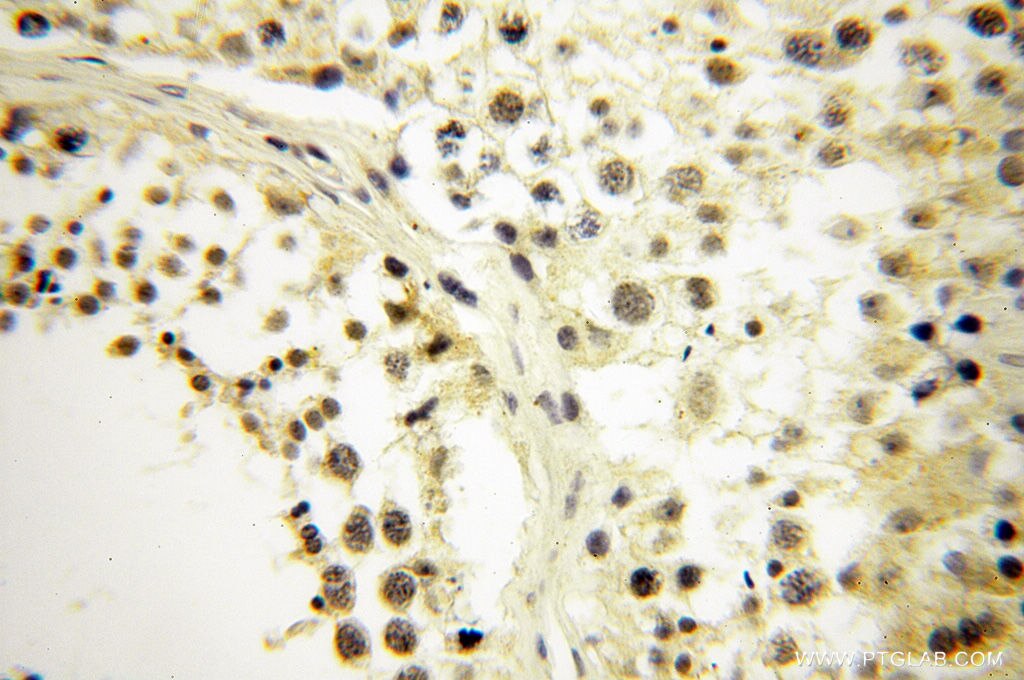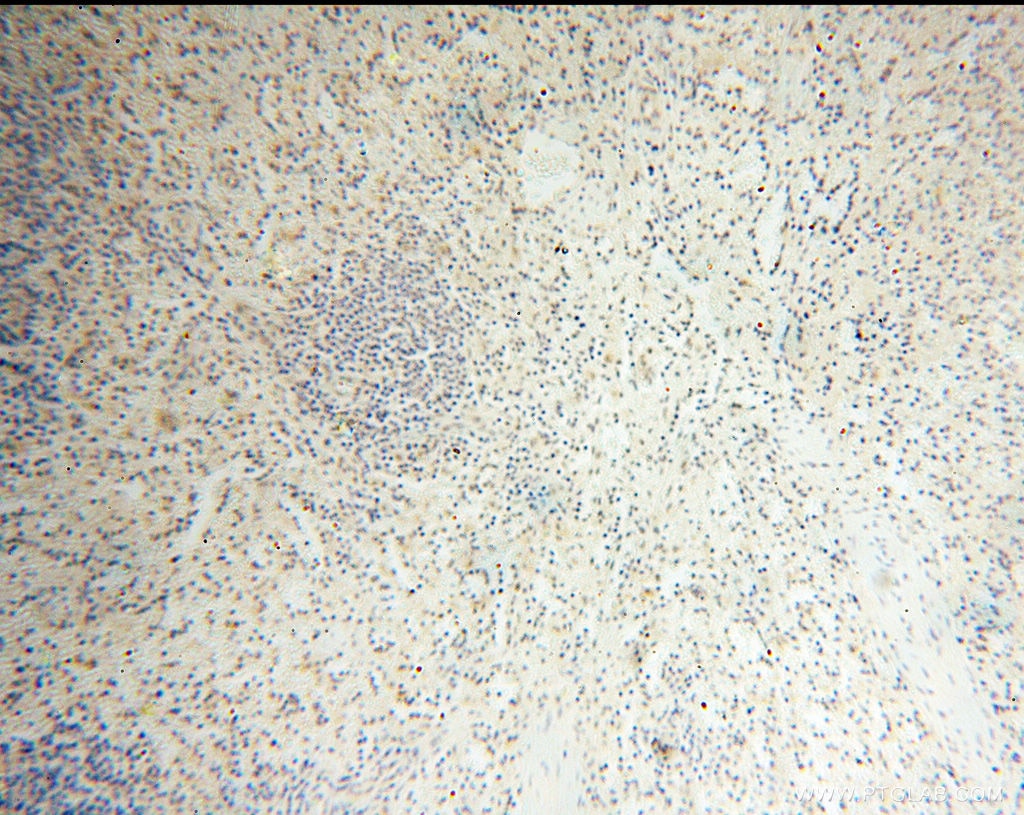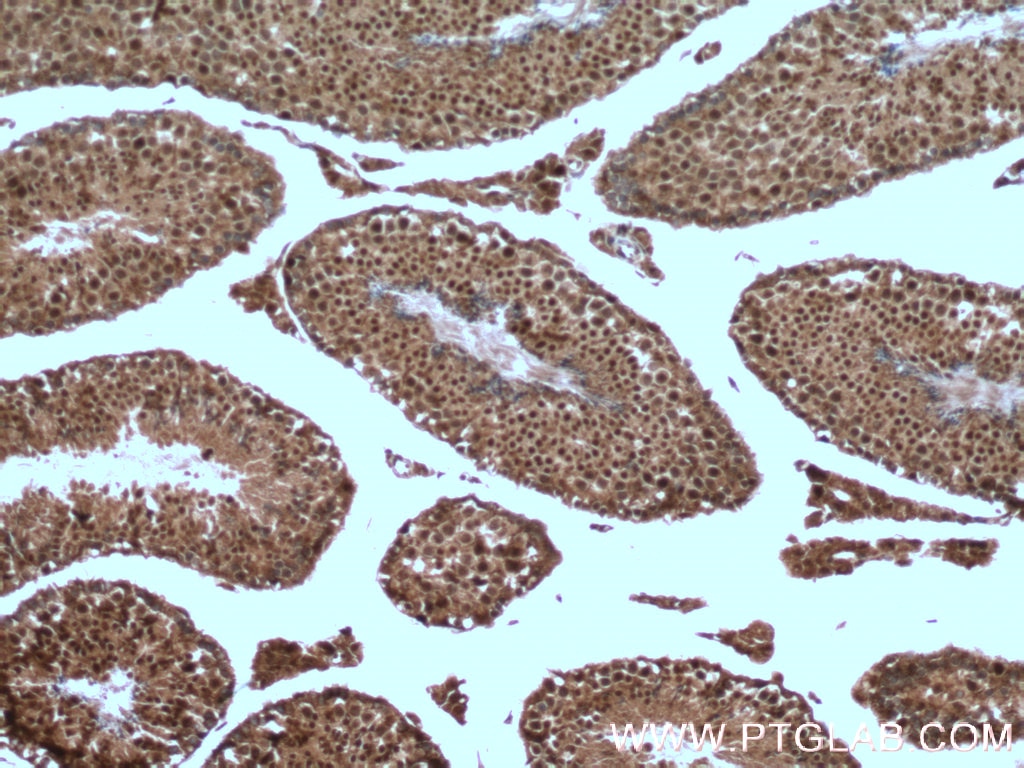SRY Polyklonaler Antikörper
SRY Polyklonal Antikörper für IHC, WB,ELISA
Wirt / Isotyp
Kaninchen / IgG
Getestete Reaktivität
human, Maus
Anwendung
WB, IHC,ELISA
Konjugation
Unkonjugiert
Kat-Nr. : 17930-1-AP
Synonyme
Galerie der Validierungsdaten
Geprüfte Anwendungen
| Erfolgreiche Detektion in WB | humanes Hodengewebe |
| Erfolgreiche Detektion in IHC | Maushodengewebe, humanes Hodengewebe, humanes Milzgewebe, humanes Nierengewebe Hinweis: Antigendemaskierung mit TE-Puffer pH 9,0 empfohlen. (*) Wahlweise kann die Antigendemaskierung auch mit Citratpuffer pH 6,0 erfolgen. |
Empfohlene Verdünnung
| Anwendung | Verdünnung |
|---|---|
| Western Blot (WB) | WB : 1:500-1:1000 |
| Immunhistochemie (IHC) | IHC : 1:50-1:500 |
| It is recommended that this reagent should be titrated in each testing system to obtain optimal results. | |
| Sample-dependent, check data in validation data gallery | |
Produktinformation
17930-1-AP bindet in WB, IHC,ELISA SRY und zeigt Reaktivität mit human, Maus
| Getestete Reaktivität | human, Maus |
| Wirt / Isotyp | Kaninchen / IgG |
| Klonalität | Polyklonal |
| Typ | Antikörper |
| Immunogen | SRY fusion protein Ag12360 |
| Vollständiger Name | sex determining region Y |
| Berechnetes Molekulargewicht | 204 aa, 24 kDa |
| Beobachtetes Molekulargewicht | 30 kDa |
| GenBank-Zugangsnummer | BC074924 |
| Gene symbol | SRY |
| Gene ID (NCBI) | 6736 |
| Konjugation | Unkonjugiert |
| Form | Liquid |
| Reinigungsmethode | Antigen-Affinitätsreinigung |
| Lagerungspuffer | PBS mit 0.02% Natriumazid und 50% Glycerin pH 7.3. |
| Lagerungsbedingungen | Bei -20°C lagern. Nach dem Versand ein Jahr lang stabil Aliquotieren ist bei -20oC Lagerung nicht notwendig. 20ul Größen enthalten 0,1% BSA. |
Hintergrundinformationen
SRY (sex-determining region Y protein) is a tran-scriptional activator required for male sex determination in mammals. This protein, also referred to as testis-determining factor (TDF), is an HMG box protein that initiates the formation of testis from undifferentiated gonad. The DNA-binding activity of SRY is required for normal testis formation. This DNA-binding activity is thought to be regulated by PKA, which phosphorylates SRY in vivo. Mutations in SRY have been associated with 46,XY gonadal dysgenesis, in which the gonads fail to develop in XY phenotypic females.
